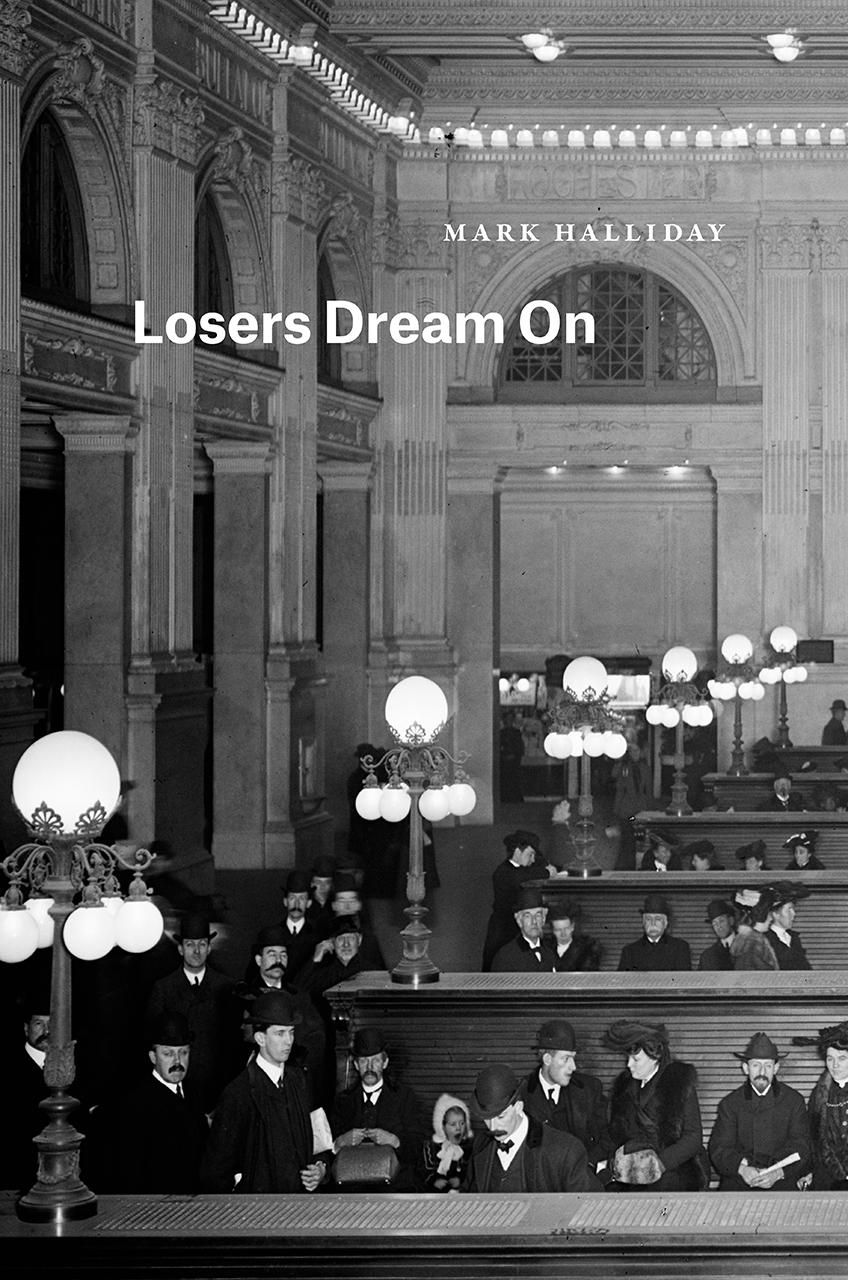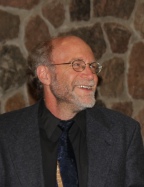Rail. Kai Carlson-Wee. A. Poulin, Jr. New Poets of America Series No. 41. BOA Editions Ltd. Rochester, New York. 2018.

Kai Carlson-Wee lays out his songs of joy and sadness with such careful modulation that it is easy to miss the big moments.
Nope, that doesn't cut it, another lesson in "first thought" not always "best thought."
Today's book of poetry will start over, try again.
Rail by Kai Carlson-Wee is a little unlike any ride we've ever taken here at Today's book of poetry. We see and hear Kerouac, Whitman, W.C. Williams, and we're not even warmed up. Carlson-Wee is world-weary and yet believably innocent at the same time.
We are all "hoping for some other miracle" as Carlson-Wee sings in his poem "Oaks." Reading Rail will cement connect you to this young writer as though you had stumbled onto a crime scene you won't ever forget.
Rail
I find it here in the wild alfalfa, head full
of antipsychotics and blue rain. Twenty years old
on a freight train riding the soy fields
into the night. Leaning away from the shortgrass
prairie, the black Mississippi of dream.
My brother asleep on the well-wall beside me,
nodding his head to the sway. What home
are we leaving? What distances blur
the electric fence? What hundred low thundering
wheels of darkness are coming to carry us
there? Rain and the singing wind, over
the auto-racks. Staring out west at the stars
of our gods and the lonely dark stars of our hearts.
Boarded-up storefronts, burned-down
apartments, highway signs that only name
the dead. We cross the station tracks,
the broken legs of Sunday chairs left rusting
in the yards. We know the way the story ends.
Still, the whistle blows. The flare stacks whip
their excess methane candles against
the night. The wheels that brought us this far
still roll, still churn the polished iron ash.
The road goes on. The highway turns a deeper
shade of black. And as the sun sinks down
on the eastern Montana hills, peppered with horses
and gun-shot cars, the rails still lead us
somewhere else, and shine in the falling light.
💫💫💫
Kai Carlson-Wee is no Tom Sawyer or Huckleberry Finn, but he may be the new American generation given voice. And it is one clever and clear siren cry. Mr. Carlson-Wee is young in age only, his voice is pure experience.
Pure of heart but stripped of dreams, these poems promise nothing. No promises, but a loud and unmistakable sirenwail that Carlson-Wee is on the job, he will mark the passing.
Damn it. Today's book of poetry just turned Rail over and read the blurbs. Today's book of poetry tries to avoid the blurbs until finished so they don't upset the works. In this case, Robert Bly is as impressive as Dorianne Laux. But then Sir Campbell McGrath. Sinner/Saint/Savant/Seer and one of our heroes....
In Today's book of poetry poetry world it does get much more hallowed than Campbell McGrath. Today's book of poetry was very pleased to see that McGrath has the same, very high, esteem for Kai Carlson-Wee.
Today's book of poetry thinks Carlson-Wee writes poems so well you might be lead to think he found them, carved in stone, in some sacred poetry place.
King
for Nik Zeidlhack 1981-2007
I go to the guardrail, looking out over the sea-foam.
Looking out over the salmon heads breaking
the waves. Muscling back to the place of their birth.
Trapped in the floodlights, failing to leap up the dam.
Sometimes the clarity. Sometimes the clarity
and night-river steaming. Time standing still
in its permanent memory. Flies in the backwater
gathered to feed on the skin. The smell of the ocean.
The waters combining with other more powerful
waters. Riding away from whatever would save them,
knowing the other direction is pointless and not worth
suffering through. What holds us together but also
what trembles. The first time you look at an actual lion,
pacing the length of its cage. The small irreversible
ink-stain breaking the face of whatever we skate on.
Slumped at the edge of your girlfriend's bed. Your
pulse gone flat. No sweat. No resistance. No steam
on the hand-held mirror they tested for breath.
The day you were found I watched ducks drop down
on the Nooksack River in pairs. Drifting together
in multicolored light, leaving small growing trails
behind them. At first I thought only the lights
were alive. The river, the fish, the clusters of flies—
they were tricks being played on the eyes. But now,
getting up on the guardrail, watching the line
where the river and ocean waves meet, the half-formed
outriders failing inside us, and something behind
all the highway signs shining. Not clarity of thought,
or light, or time. But clarity of small things believing
in themselves. Dark heads breaking the surface
again. More than the living. More than the dead.
💫💫💫
Our morning read was a delight. Spring is in the air in Ottawa, although we know all too well that winter is not over. Spring is in the air; that's the same thing as saying "we have new hope." Rail could be seen as simply that, new hope. But there is so much more going on. Kai Carlson-Wee's Rail is an embarrassment of riches.
Our small cabal here at Today's book of poetry read Rail out loud with sentiments approaching glee and astonishment.
Such extraordinary gifts and Carlson-Wee is a young man — there will be, we hope, much more poetry from this marvel. Today's book of poetry will be waiting.
Seven-Day Fast
Now I forget what I wanted to say about hunger.
The tree's sharp arrangements of lines
on the white sky, clusters of off-shooting
branches dissolving among them
like outdated scans of the brain.
Faded by sunlight, or disuse, or whatever.
I barely imagine by what. The gathering
dust on the shoebox they wait in.
Filed away for a future appointment
with some other specialist, talking of
networks, compatible pathways,
unsourced receptors, the closest
approximate rate of attrition. They talk
with the same sympathetic restraint
used for death. We see the sterility first,
predictions unfolding in ribbons
of uncharted highways beyond
other skies. We use metaphors
like this. We say the spirit is more
than the critical mass. We say prayers
are reflected in atoms, in snowflakes
freezing, in magnified raindrops.
We say there is no way of knowing
the will. The hand held flat to the palm reader's
always astonished tones. We say dreams.
A series of blackouts, minor strokes.
We say there is more than the body's
measurable electrics. The forgotten
children who stand at the bedrail,
showing us pictures of speedboats and horses,
our own selves posing with tulips and lilacs
in front of our whitewashed homes.
We say the soul. The out-riding weather
inside us. The down-pouring water
that runs from the mountain, that sleeps
in the frozen beet field, that denies
this hunger, that sings in the blood.
💫💫💫
Kai Carlson-Wee is a cowboy/poet/prophet, just like his publisher claims. It ain't bragging if it's true.

Kai Carlson-Wee
ABOUT THE AUTHOR
Kai Carlson-Wee is the author of Rail (BOA, 2018). He has received fellowships from the MacDowell Colony, the Bread Loaf Writers' Conference, the Sewanee Writers' Conference, and his work has appeared in Narrative, Best New Poets, TriQuarterly, Blackbird, Gulf Coast, and The Missouri Review, which awarded him the 2013 Editor’s Prize. His photography has been featured in Narrative Magazine and his co-directed poetry film, Riding the Highline, received jury awards at the 2015 Napa Valley Film Festival and the 2016 Arizona International Film Festival. With his brother Anders, he has co-authored two chapbooks, Mercy Songs (Diode Editions) and Two-Headed Boy (Organic Weapon Arts), winner of the 2015 Blair Prize. A former Wallace Stegner Fellow, he lives in San Francisco and is a lecturer at Stanford University. For more information about Kai Carlson-Wee, visit kaicarlsonwee.com.BLURBS
“Rail is a lovely book, strong and inspired.”
—Robert Bly
“This is a wholly unique and powerful collection of poems. The sense of purpose puts one in mind of Whitman’s ‘Song of the Open Road.’ Encounters with fellow vagabonds recalls the tramp-poetry of Vachel Lindsay. But the darker need to search for meaning in the American plains and points farther west—a vastness forlorn and almost unknowable—belongs to the particular vision of this poet. His journey through our national ambiguity discovers a flicker in our roots, a spark popping from obscurity that rises into the heavens. The lived experience behind these deft and subtle poems seems necessary, and reiterates the fact that resilience is not only a feature of the American character, it is a recurring tenet of American art.”
“This is a wholly unique and powerful collection of poems. The sense of purpose puts one in mind of Whitman’s ‘Song of the Open Road.’ Encounters with fellow vagabonds recalls the tramp-poetry of Vachel Lindsay. But the darker need to search for meaning in the American plains and points farther west—a vastness forlorn and almost unknowable—belongs to the particular vision of this poet. His journey through our national ambiguity discovers a flicker in our roots, a spark popping from obscurity that rises into the heavens. The lived experience behind these deft and subtle poems seems necessary, and reiterates the fact that resilience is not only a feature of the American character, it is a recurring tenet of American art.”
—Maurice Manning
“Brotherly love, a sense of displacement and lost time, and the deep care that reminds us of our humanity, form the heart of this book. These poems are a scavengers guide, a survivalist manifesto, a reminder of the way our daily experiences can fuel and forge our faith. A hauntingly beautiful and unusual debut.”
“Brotherly love, a sense of displacement and lost time, and the deep care that reminds us of our humanity, form the heart of this book. These poems are a scavengers guide, a survivalist manifesto, a reminder of the way our daily experiences can fuel and forge our faith. A hauntingly beautiful and unusual debut.”
—Dorianne Laux
“Equal parts dithyramb and lament, the great American bardic tradition celebrates lonesome wandering even as it hungers for enduring communion. Kai Carlson-Wee is a worthy inheritor of its dusty mantle, worn by Whitman and Kerouac before him, and Rail is a moving testament to the territories of freight trains, Minnesota roads, dumpster diving, and brotherhood. ‘The road goes on. With or without us.’ Yes, but how much better to have this unforgettable music to guide the way.”
“Equal parts dithyramb and lament, the great American bardic tradition celebrates lonesome wandering even as it hungers for enduring communion. Kai Carlson-Wee is a worthy inheritor of its dusty mantle, worn by Whitman and Kerouac before him, and Rail is a moving testament to the territories of freight trains, Minnesota roads, dumpster diving, and brotherhood. ‘The road goes on. With or without us.’ Yes, but how much better to have this unforgettable music to guide the way.”
—Campbell McGrath
Kai Carlson-Wee
Reading the poem Thresher at the Best New Poets Reading in Madison Wisconsin, December 9th, 2010
Video: Kai Carlson-Wee
740
DISCLAIMERS
Poems cited here are assumed to be under copyright by the poet and/or publisher. They are shown here for publicity and review purposes. For any other kind of re-use of these poems, please contact the listed publishers for permission.
We here at TBOP are technically deficient and rely on our bashful Milo to fix everything. We received notice from Google that we were using "cookies"
and that for our readers in Europe there had to be notification of the use of those "cookies. Please be aware that TBOP may employ the use of some "cookies" (whatever they are) and you should take that into consideration







